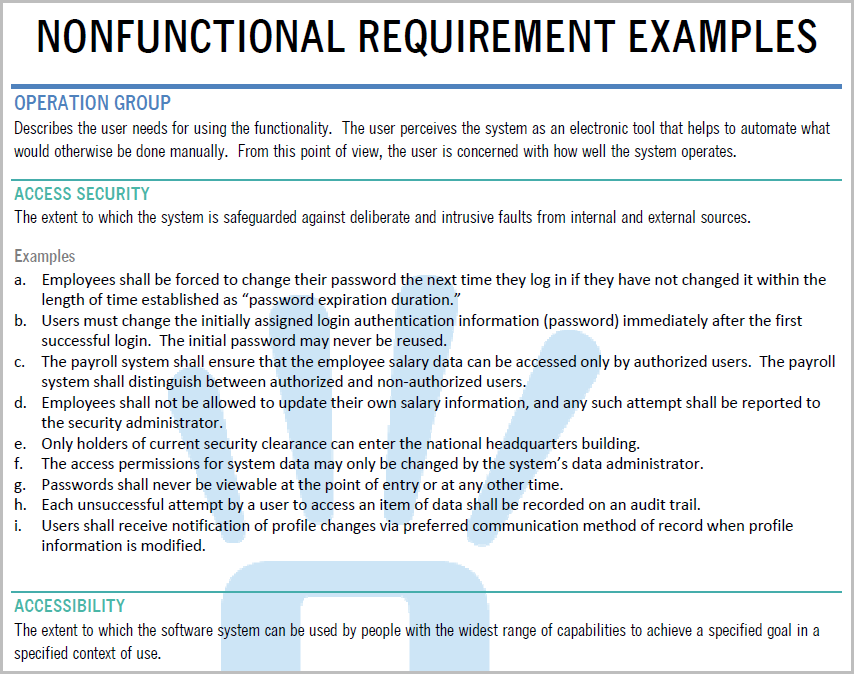

#Functional requirements software
Evolution qualities, such as testability, maintainability, extensibility and scalability, which are embodied in the static structure of the software system.Execution qualities, such as security and usability, which are observable at run time.Non-functional requirements - can be divided into two main categories: The system's overall properties commonly mark the difference between whether the development project has succeeded or failed.

Non-functional requirements are in the form of "system shall be ", an overall property of the system as a whole or of a particular aspect and not a specific function. This are the requirements that specifies criteria that can be used to judge the operation of a system, rather than specific behaviours. Non-functional requirements are any other requirement than functional requirements. LBushkin have already explained more about Non-functional requirements. This information is used to help the reader understand why the requirement is needed, and to track the requirement through the development of the system. It may beĪ typical functional requirement will contain a unique name and number, a brief summary, and a rationale. Often, though, an analyst will begin by eliciting a set of use cases, from which the analyst can derive the functional requirements that must be implemented to allow a user to perform each use case.įunctional requirements is what a system is supposed to accomplish. Each use case illustrates behavioural scenarios through one or more functional requirements. Use cases can be textual enumeration lists as well as diagrams, describing user actions.

The most common ones are written descriptions in documents, and use cases. maintainability, extensibility, documentation, etc.).įunctional requirements specifies a function that a system or system component must be able to perform. Non-functional requirements may also describe aspects of the system that don't relate to its execution, but rather to its evolution over time (e.g. something that can be measured about the system) to make them more tangible. Non-functional requirements are sometimes defined in terms of metrics (i.e. Typically non-functional requirements fall into areas such as:Ī more complete list is available at Wikipedia's entry for non-functional requirements. The non-functional requirement elaborates a performance characteristic of the system. The functional requirement is describing the behavior of the system as it relates to the system's functionality. Emails should be sent with a latency of no greater than 12 hours from such an activity.an order is placed, a customer signs up, etc).Ī related non-functional requirement for the system may be: A system must send an email whenever a certain condition is met (e.g.A functional requirement describes what a software system should do, while non-functional requirements place constraints on how the system will do so.Īn example of a functional requirement would be:


 0 kommentar(er)
0 kommentar(er)
